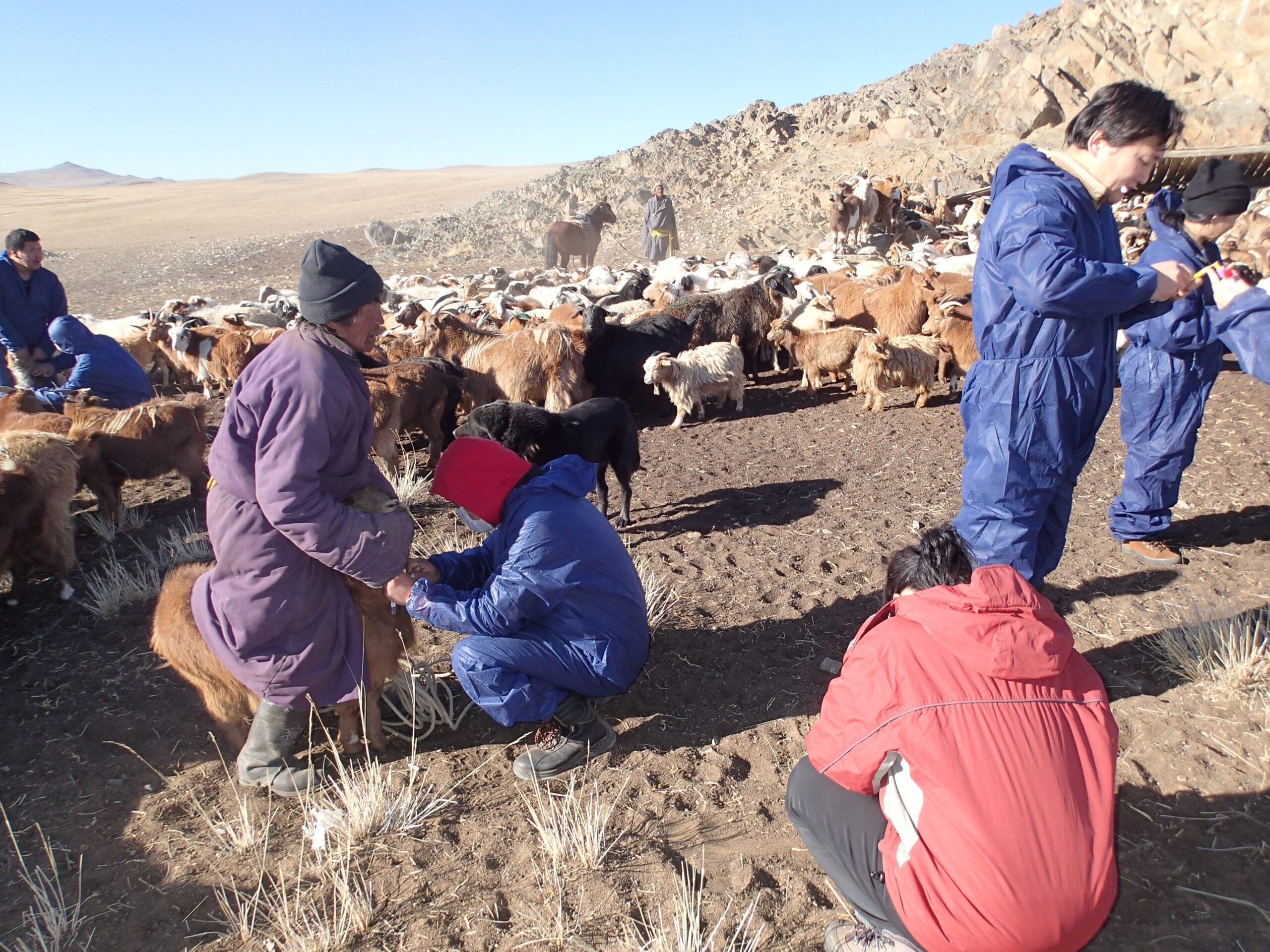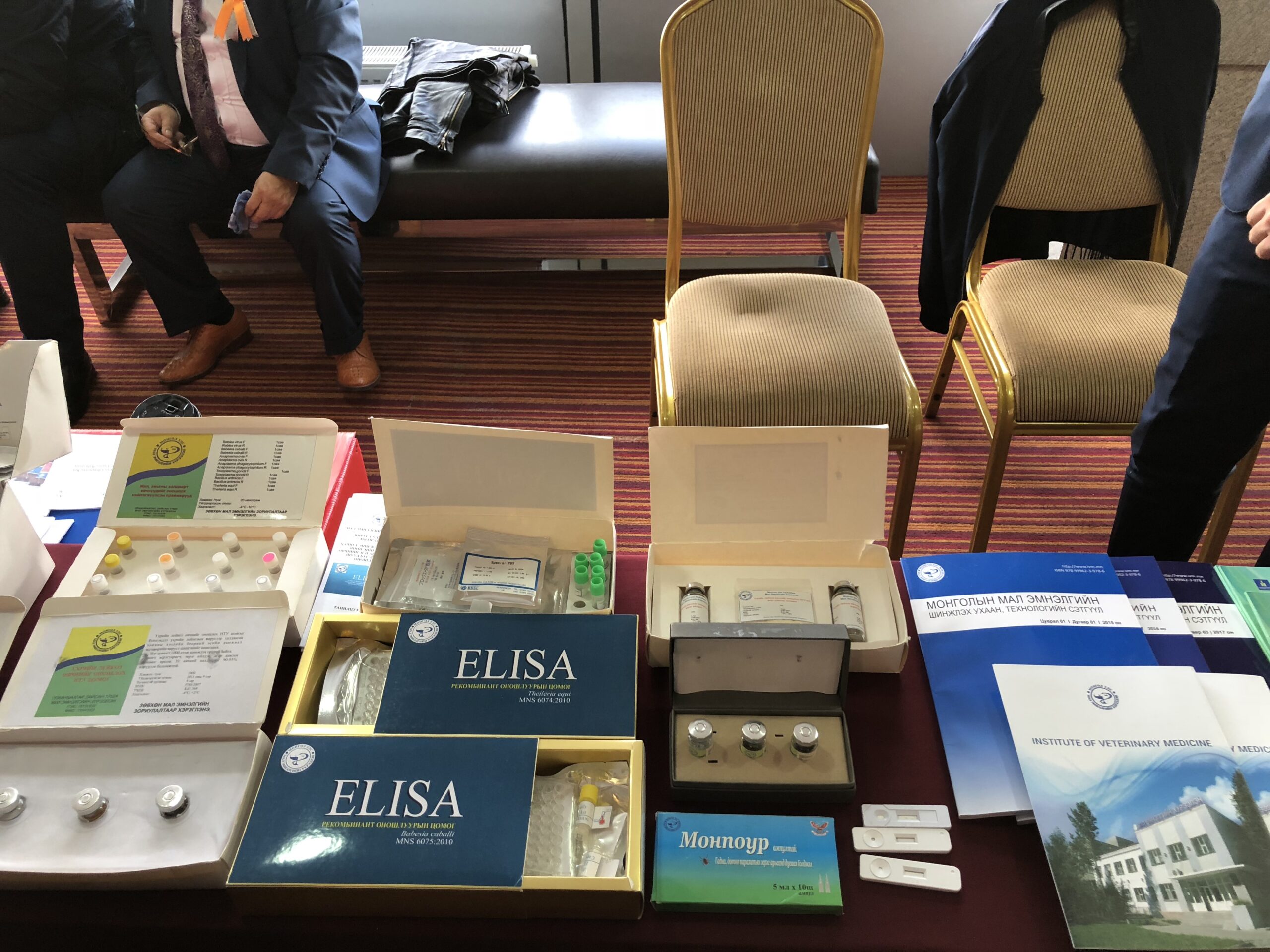INOUE Noboru Professor
ThemeDevelopment of diagnostic, therapeutic, and preventive methods for animal trypanosomoses (AT), and epidemiological studies for AT. Research on the mechanisms of cell differentiation in African trypanosome in progress of its life-cycle.
Field
Keyword
Instructable research topic for doctoral thesis
動物のトリパノソーマ病対策に関連する以下のテーマ
- 1.診断法の開発
- 2.治療薬の開発と作用機序の解明
- 3.予防法(ワクチンや予防薬)の開発と作用機序の解明
- 4.疫学調査とリスク要因の解明
寄生生物としてのトリパノソーマに関連する以下のテーマ
- 1.細胞表面分子を介した宿主やベクターとの相互作用解明
- 2.生活環の進行に伴う細胞分化など環境適応メカニズムの解明
Message
列記した卒業研究のテーマはいずれも研究の最終目標です。皆さんが行う卒業研究は最終目標を達成するために行ういくつかの研究の一部ですので「壮大すぎて手に負えそうにないなー」と心配する必要はありません。トリパノソーマのような寄生生物は自己の生存を他の生物に依存しなくてはならない生き物です。寄生しても宿主には全く悪影響を与えないように見える種がいる反面、難治性の疾病を引き起こす種もいたりします。ところが病原性の有無を分ける原因は殆ど分かっていません。また、トリパノソーマ病に有効なワクチンも、特効薬と呼べる安全な治療薬もありません。疫学調査やリスク要因の解析から流行実態を明らかにした上で、実用可能な診断・治療・予防法を開発することもきわめて重要です。深奥な寄生虫学の世界に触れてみませんか?
| Academic degree | Ph.D. |
| License | Veterinarian |
| Self introduction |
I am from Tokushima Pref. My hobbies are reading and art appreciation. My specialty is parasitology and protozoology. I have been developing diagnostic methods for animal trypanosomoses, conducting epidemiological surveys, and studying the molecular mechanism of life cycle development of trypanosome. I have been an OIE Reference Laboratory Expert (Surra) since June 2007 to present. |
| Room address | National Research Center for Protozoan Diseases |
| Room number | 102 |
| Mail address | ircpmi  obihiro.ac.jp
obihiro.ac.jp |
Belongs
National Research Center for Protozoan Diseases/Director GeneralNational Research Center for Protozoan Diseases/Department of Disease Control/Research Unit for Advanced Preventive MedicineNational Research Center for Protozoan Diseases/Department of Global Cooperation/International Cooperation UnitAgri-information technology Center /センター長Research Center for Global Agromedicine/Department of Veterinary MedicineIntroduction
Variety of trypanosome species had been reported from human and animal hosts. Interestingly, their virulence to hosts is ranging from avirulent to high that cause fatal trypanosomosis. Each trypanosome species has various phenotypes in terms of host/vector-parasite relationships, such as trypanosome species with high or low host specificity, different mode of transmission namely biological transmission, mechanical transmission, and sexual transmission. In addition, some species are parasitized into host cell, while others are obligate extracellular parasite, making them formidable enemies that will use whatever means necessary to survive. Unfortunately, our current control measures to combat trypanosomoses are limited, i.e., early diagnosis followed by isolation of patients and affected animals, treatment with drugs which often cause severe adverse effects, and vector control. To improve the current situation, we are conducting development of simpler, affordable, and more accurate diagnostic methods, safe therapeutic agents, and vaccines, as well as to analyze the prevalence and risk factors of the disease.
Another research project focuses on the survival strategies of trypanosomes as parasitic organisms. Trypanosomes can survive within their mammalian hosts and vectors (often insects), which have completely different internal environments. However, mechanisms of their life-cycle development and environmental adaptation are largely unknown. Our research is particularly focused on the identification and functional analysis of developmental stage-specific surface molecules. This basic research is also being conducted in the hope that it will lead to the development of future transmission blocking vaccines and therapeutics that target the cell differentiation mechanisms of trypanosomes.



List of current research topics
The following topics related to eradication of animal trypanosomoses
- 1. Development of diagnostic methods
- 2. Development of therapeutic agents and elucidation of their modes of action
- 3. Development of prophylactic methods (vaccines and prophylactic drugs) and elucidation of their modes of action
- 4. Epidemiological studies and risk factor analyses
The following topics related to trypanosomes as parasitic organisms
- 1. Interactions with hosts and vectors via cell surface molecules
- 2. Elucidation of mechanisms of environmental adaptation such as cell differentiation during life cycle progression
| Related industries | Veterinary Science, Animal Science, Veterinary Pharmaceutical, Food Safety, Environmental Science, Wild Life |
| Affiliated academic society | The Japanese Society of Veterinary Science, Japanese Society of Veterinary Parasitology, Japanese Society of Parasitology, Japanese Society of Tropical Medicine |
| Academic background | March 1994 Bachelor of Veterinary Medicine, Obihiro University of Agriculture and Veterinary Medicine June 1995 Research Fellow, Obihiro University of Agriculture and Veterinary Medicine September 1999 Doctor of Veterinary Medicine (Gifu University) April 2000 Senior Assistant Professor, Obihiro University of Agriculture and Veterinary Medicine October 2003 Associate Professor, Obihiro University of Agriculture and Veterinary Medicine June 2007~Present OIE Reference Laboratory Expert (Surra) April 2012~March 2016 Professor, Obihiro University of Agriculture and Veterinary Medicine January 2014~March 2016 Assistant to the President, Obihiro University of Agriculture and Veterinary Medicine April 2014~March 2016 Director, National Research Center for Protozoan Diseases April 2016~March 2022 Executive Vice President, Director, Obihiro University of Agriculture and Veterinary Medicine October 2018~Present Honorary Professor, Mongolian University of Life Sciences April 2022~Present Professor, Obihiro University of Agriculture and Veterinary Medicine April 2022~Present Assistant to the President, Obihiro University of Agriculture and Veterinary Medicine |






